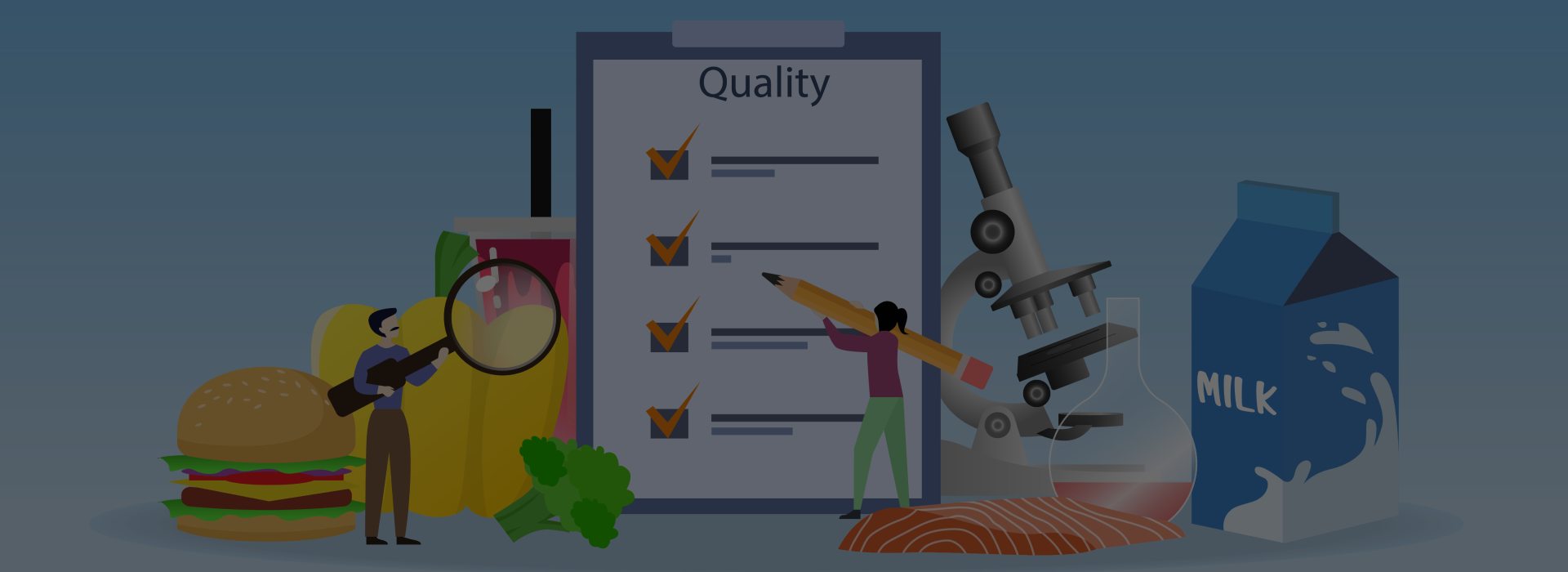Quality and safety are paramount in the food and beverage industry, where consumer trust is built on the assurance of high standards. Certifications for the food industry play a pivotal role in ensuring that businesses adhere to stringent regulations and deliver products that meet or exceed customer expectations. These certifications not only validate the commitment of organizations to quality but also contribute to the overall improvement of the industry’s safety standards.
Importance of Food & Beverage Certification
Certifications are not just checkboxes but critical assurances in an era where consumers demand transparency and accountability. Beyond regulatory requirements, food and beverage certifications act as assurances to consumers, stakeholders, and regulatory bodies that a company is devoted to delivering safe and high-quality products. They are gateways to global markets, facilitating international trade by ensuring adherence to universally accepted standards. In essence, food and beverage quality control certifications act as a catalyst for elevating industry standards, fostering innovation, and ensuring the sustained growth of businesses.
5 Certifications for the Food and Beverage Industry
In the food and beverage industry, making sure things are safe and top-notch is super important. Certifications are like stamps of approval, showing that a company is serious about giving their consumers the best. Here are the five important ones that ensure everything meets the standards.
SSC 22000 (Food Safety System Certification)
FSSC 22000 is a comprehensive certification that focuses on food safety management systems. It integrates ISO 22000 and PAS 220 standards, providing a holistic approach to ensuring the safety of food products. FSSC 22000 is recognized by the Global Food Safety Initiative (GFSI), making it globally accepted and respected.
FSSC certification is particularly valuable for organizations involved in the entire food supply chain. It covers essential elements such as hazard analysis, traceability, and control of food safety hazards. FSSC 22000 certification not only enhances the credibility of a business but also demonstrates a commitment to continuous improvement in food safety management.
Suggested Read – What is ISO 13485 Certification ?
ISO 22000 (International Organization for Standardization)
ISO 22000 is a globally recognized standard for food safety management systems. It provides a systematic and proactive approach to identifying, preventing, and managing food safety hazards. ISO 22000 is applicable to all organizations, regardless of their size or position in the food chain, making it one of the most versatile certifications in the industry.
By obtaining ISO 22000 certification, companies demonstrate their dedication to ensuring food safety at every stage of the production process. This not only safeguards consumers but also streamlines processes, reduces risks, and opens doors to international trade. ISO 22000 is a testament to a company’s commitment to meeting regulatory requirements and customer expectations.
BRC Global Standard for Food Safety
The British Retail Consortium (BRC) Global Standard for Food Safety is a widely recognized certification that sets the benchmark for food safety and quality. It provides a framework for best practices in the production, storage, and distribution of food products. BRC certification is particularly important for businesses supplying retailers, as many major retailers worldwide require their suppliers to adhere to BRC standards.
BRC certification covers a range of criteria, including HACCP (Hazard Analysis and Critical Control Points), senior management commitment, and continual improvement. Achieving BRC certification not only enhances a company’s reputation but also establishes a strong foundation for compliance with regulatory requirements and industry best practices.
IFS (International Featured Standards)
The International Featured Standards (IFS) is a series of globally recognized standards that focus on food safety, quality, and legality. IFS certifications are designed to ensure transparency and trust throughout the supply chain. The IFS Food Standard, in particular, is relevant for food processing companies and specifies requirements for food safety and the quality of processes and products.
IFS certification places a strong emphasis on risk management, senior management responsibility, and continuous improvement. It provides a structured framework for companies to enhance their processes and meet the growing expectations of consumers and retailers. IFS certification is recognized by many retailers and manufacturers worldwide, making it a valuable asset for businesses aiming to expand their market reach.
HALAL
In a globalized market, catering to diverse consumer needs is essential for success. HALAL certification ensures that food products comply with Islamic dietary laws, making them permissible for consumption by Muslims. This food quality control certification is important for companies targeting Muslim consumers but also for those looking to enter markets where HALAL certification is a legal or cultural requirement.
The HALAL certification covers various aspects, including sourcing, processing, and packaging, to ensure that the entire supply chain adheres to HALAL standards. By obtaining HALAL certification, companies can tap into a vast and growing market of Muslim consumers who prioritize the consumption of products that align with their religious beliefs.
Also, Read – What is Quality Control in the Beverage Industry ?
Conclusion
At Global Inspection Managing, we proudly position ourselves as an excellent partner for the food industry’s certification needs. We are ISO 9001:2015 certified, reinforcing our comprehensive quality-management commitment every step of the way. Our unwavering commitment to upholding the highest standards of quality and safety seamlessly aligns with the stringent requirements of certifications. With a wealth of experience and a team of dedicated professionals, we offer comprehensive support throughout the certification process. From navigating the complexities of documentation to implementing best practices that meet industry standards, we provide invaluable assistance. Our tailored approach and meticulous attention to detail make us a trusted ally for businesses in the food industry seeking to achieve and maintain the certifications necessary to thrive in a competitive market.
Whether it’s demonstrating a commitment to global food safety standards, meeting the rigorous requirements of retailers, or catering to specific cultural and religious preferences, these certifications empower businesses to thrive in an increasingly complex landscape. As the food and beverage industry continues to evolve, staying ahead with the right certifications is not just a choice but a necessity for those aspiring to excellence and leadership in the field.

